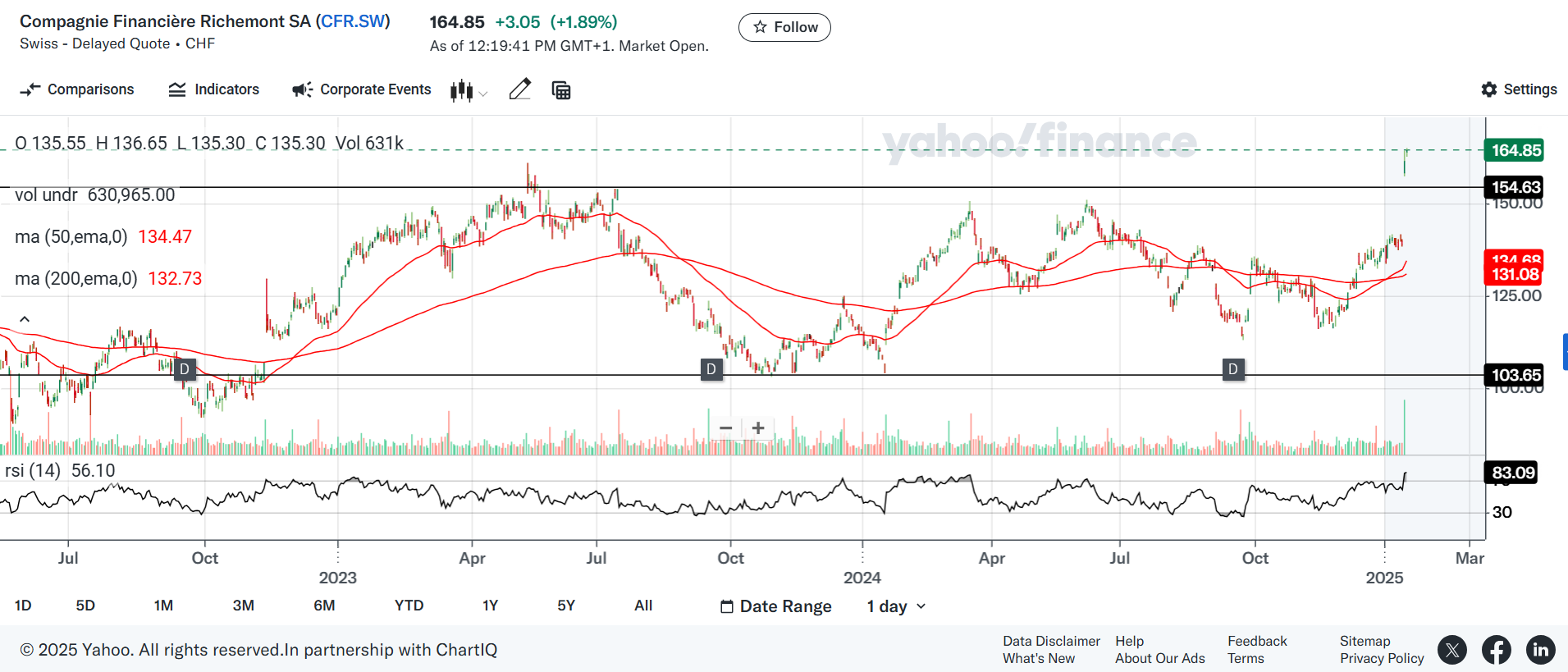Richemont (SIX: CFR)

Fundamental analysis
Richemont, fully known as Compagnie Financiere Richemont S.A., is a Swiss company founded by South African businessman Johann Rupert. The company owns world-famous brands in the luxury goods sector, mainly watches (A. Lange & Söhne, Baume & Mercier, Cartier, IWC Schaffhausen, Vacheron Constantin), jewelry (Cartier, Buccellati), luxury fashion (Delvaux, Chloé, Dunhill, Net-a-Porter, Montblanc). Richemont shares are traded on the Swiss and South African stock exchanges.
Richemont is the second largest luxury goods company in the world after LVMH.
The current market capitalisation of the company is 88.7 billion Swiss francs.
For the year 2024, the company’s turnover was 21 billion Euros and cash held was 7.4 billion Euros. Operating profit was 4.8 billion Euro.
Sector-wise, revenues are split:
– 69% jewellery
– 18% luxury watches
– 13% the rest
The operating margin was 23.3% across the group. Luxury jewellery had the highest margin (33%), while watches had a margin of 15%.
Geographically, sales are split:
– 22% Europe (Chinese clients spend significantly here).
– 40% Asia-Pacific
– 22% Americas (in 2024, the USA will become Richemont’s largest market)
– 8% Japan
– 8% Middle East and Africa (the United Arab Emirates is the main market)
70% of sales come from in-store sales, with 6% coming from online sales.
The company pays a dividend.
Results
For 3Q 2025, the company’s sales grew by 10%. The company achieved all-time high sales of EUR 6.2 billion. Richemont grew in most of its markets, with a decline in Asia, mainly due to a drop in China (-18%). In contrast, sales in Europe+ grew by 19%, mainly due to tourists from the US and the Middle East.
Technical analysis
The company is in an uptrend according to the moving averages. The crossover has occurred recently, mainly due to the jump in price following the release of the latest quarterly results.
The RSI, on the other hand, is in the overbought zone due to the price gap.
Volume is below 1 million shares traded per day.
Conclusion
Luxury goods is generally a counter-cyclical sector. The rich thrive even in times of bad economic conditions. But they do even better when the whole economy is doing well. Which is the case with Richemont’s sales growth. The company has high cash on hand and a decent margin on its products. If the demand for their products holds up, they can continue to grow. But if demand drops, the share price may drop as well. The 18% drop in sales in China is unpleasant. China and the US are the biggest markets for Richemont. Their geopolitical situation is now very volatile.